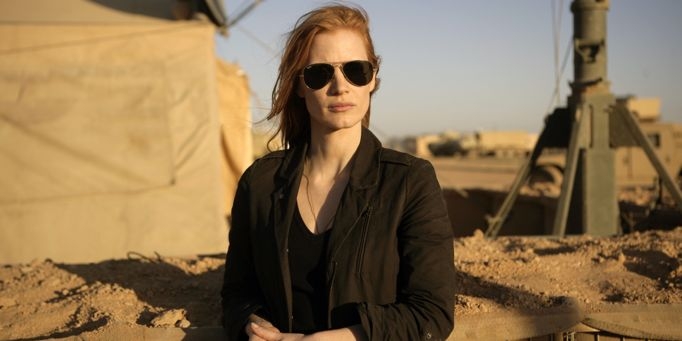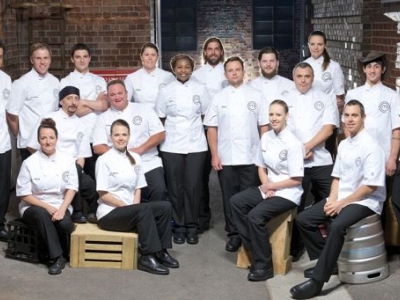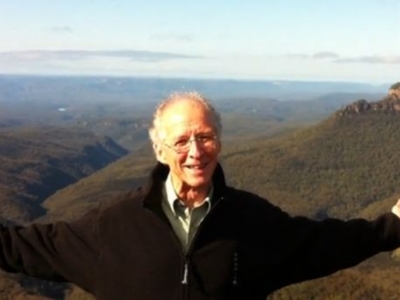
Zero Dark Thirty: Movie Review
Mark Hadley looks at the use of torture, and the power of conviction in the hunt for Osama bin Laden.
Zero Dark Thirty does more than initiate the viewer into the shady dealings that led to the death of Osama bin Laden. It has ignited a controversy over where zeal should be allowed to take us.
Directed by Kathryn Bigelow, the Oscar-winning director of The Hurt Locker, this film tracks the CIA’s decade-long hunt for the leader of al-Qaeda and the false trails it stumbles down before finally cornering Osama bin Laden. The story centres on the experiences of a fictional analyst called Maya, played by Jessica Chastain. Recruited by the CIA from college, she spends a decade following leads in Pakistan where she stumbles upon the mention of bin Laden’s trusted courier, ‘Abu Ahmed’. Wiretaps, interrogations and covert surveillance eventually track Ahmed to a compound on the outskirts of Abbottad. Maya struggles for the lead to be taken seriously and eventually gains permission to send in a US SEAL team. Zero Dark Thirty is military parlance for half-past-midnight, the time the special forces breach the compound’s walls in search of the West’s most wanted man.
Zero Dark Thirty is clearly a dramatization but its attention to historical details bestows a sense of documentary on its two and a half hour tale. It chronicles the now-obvious change in warfare as the CIA struggles to come to terms with its religiously inspired enemies. Jennifer Ehle plays Jessica, a fellow spy who disagrees with Maya’s criticisms of trying to bribe terrorists for information:
Jessica: You’re assuming greed won’t override ideology in some of the weaker members.
Maya: Money for walk-ins worked during the Cold War, I’ll give you that.
The implication is that true believers in any cause have their eyes on something other than short-term gains. To progress, the CIA will have to do more than write cheques – which brings us to the film’s most controversial scenes.
The use of torture
Zero Dark Thirty has been accused of vindicating the CIA’s use of torture in America’s fight against terrorism. Maya and several other agents initially employ ‘enhanced interrogation techniques’ including water-boarding and shaming in some of the most distressing parts of the film, and these actions give them their first hint about the existence of ‘Abu Ahmed’. That door is eventually closed by political pressure, but civil rights watchdogs have complained that the scenes provide an inaccurate portrayal of the effectiveness of torture. In truth, the argument is more than a little muddy with the film’s climax being brought about by a number of leads. However, it’s easy to see audiences coming away with the impression that such techniques are an ugly but necessary part of modern war. Yet I retain some sympathy for Bigelow who argues that the accuracy of the film demanded its inclusion. “Do I wish [torture] was not part of that history?” she has told her critics. “Yes. But it was.”
What Zero Dark Thirty makes very clear is that it wasn’t the torture or the techniques, nor the technology of the CIA that eventually tracked down bin Laden. It was the conviction of the operatives involved. With the ‘Weapons of Mass Destruction’ fiasco fresh in their minds, managers and government minders are hesitant to commit to an incursion into an ally’s territory, but Maya has been searching for bin Laden for twelve years and she will not let them rest in uncertainty:
CIA Director: What else have you done for us, other than bin Laden?
Maya: Nothing. Nothing else.
CIA Director: Well, you certainly have a flair for it.
In the end, it is not the evidence but Maya’s conviction that carries the day, and provides the most sympathetic point for Christians who might be watching. Maya has devoted her life to this cause, she has held back nothing and her faith in her conclusion arises from putting her beliefs to the test day after day. Like the believer in any normal line of work, her dedication strengthens her argument. Christians who proclaim the Gospel to their friends, but fail to live changed lives should take note. The sadness for Maya, though, is that when she finally reaches her goal, her life becomes devoid of meaning. Christianity, by contrast, is not a passing cause but a relationship with a person who will be as relevant tomorrow as He is today.
Should you watch Zero Dark Thirty with kids?
Zero Dark Thirty has some disturbing scenes that I would not recommend for anyone below 15, though strangely nothing so unnerving as many other M-rated action films. But since its historical context is likely to make it a subject of conversation for older students I’d consider asking the following:
- Why doesn’t a Christian have to support a ‘last resort’ like torture?
- Had Osama bin Laden really ‘escaped justice’ for 12 years?
- Why does Maya look like the bottom has fallen out of her life at the end of the film?
For more articles from Growing Faith, subscribe to our monthly e-newsletter.
To hear about the latest books and resources from Youthworks Media, subscribe here.







